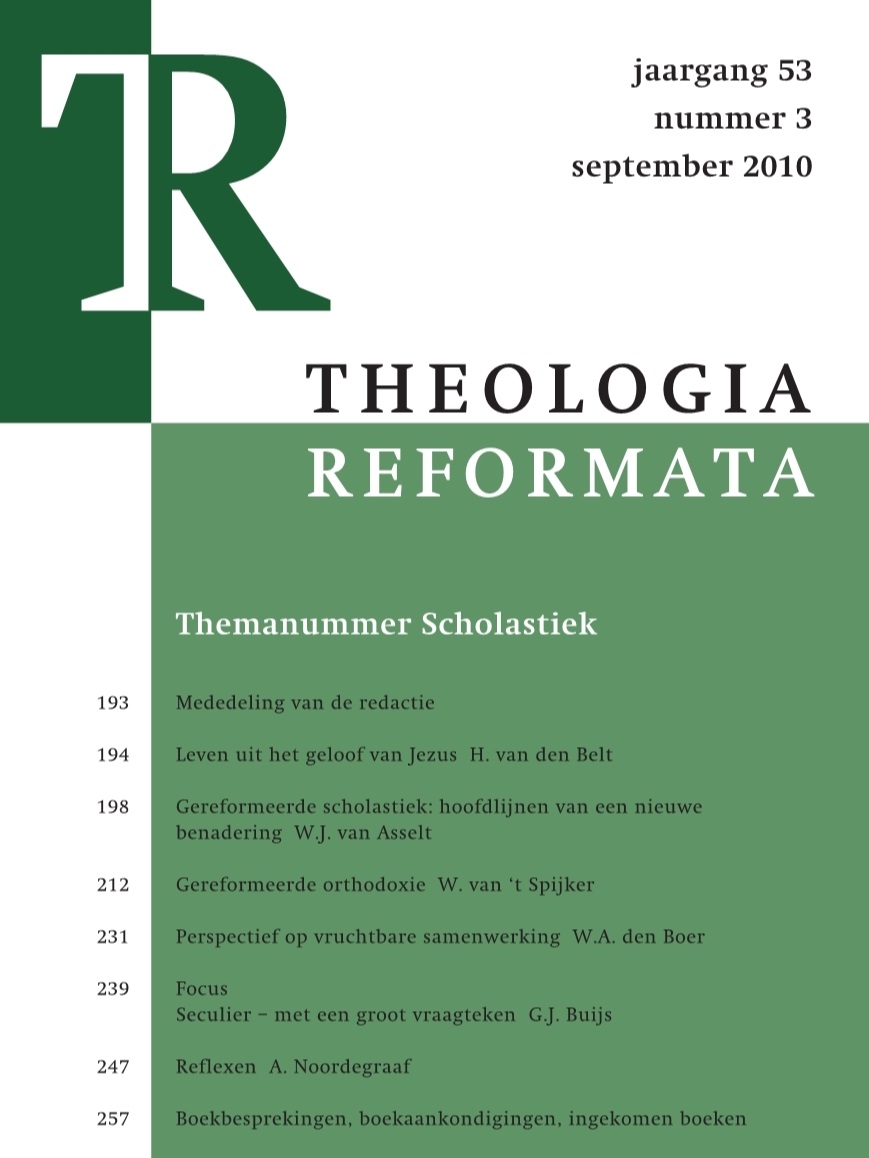Gereformeerde orthodoxie
Samenvatting
This article shows how Reformed scholasticism contributed to the shaping of Reformed orthodoxy. When Luther aimed to reject Aristotle, this rejection was less thorough than commonly assumed. Aristotle returned in a Christianized fashion, accompanied by some methodological projects borrowed from other philosophical schools. Diversity in prolegomena did not detract from a profound intrinsic unity established within Reformed orthodoxy. Originally, this unity involved views of the Eucharist, predestination, and Christology. Later on, the same unity extended to the fields of Scripture, the doctrine of grace, and ecclesiology. Increasing confessionalization and denominalization, as well as the political situation of the late Sixteenth and early Seventeenth centuries, also had a considerable influence. At the end of the Seventeenth century came the decline of Reformed orthodoxy and the rise of the Enlightenment.

